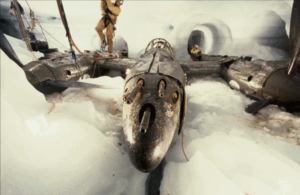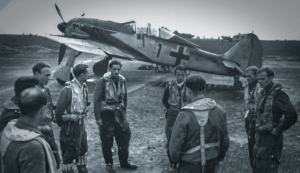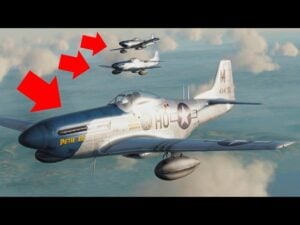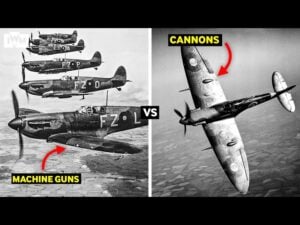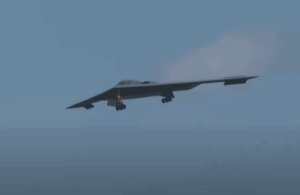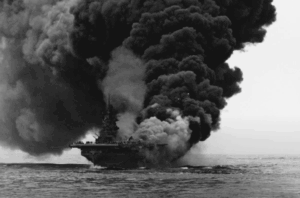How Two B-17s Flew Piggyback and Survived

YouTube / Yarnhub
On December 31, 1944, Glenn Rojohn and his crew embarked on a bombing mission over Hamburg in their B-17G.
The Germans mounted a fierce defense, meeting the bombers with heavy anti-aircraft fire. Suddenly, the sky was filled with Flak shells, severely hampering visibility and coordination.

The Way Home
On their return to England, the bombers encountered aggressive German Bf 109 fighters at 20,000 feet.

These fighters attacked relentlessly, forcing the bombers to push through and maintain formation.
Rojohn later recalled how close the enemy planes came, allowing him to see the faces of the German pilots.

Like Dragonflies
Amidst the chaos, Lt. William McNab tried to fill the gap left by a downed B-17 in the formation.
McNab’s plane, Nine Lives, collided with Capt. Rojohn’s B-17, The Little Skipper.

Nine Lives ended up beneath The Little Skipper, making it appear as if two dragonflies were mating, according to witnesses.
Bailing Out

After McNab and his co-pilot succumbed to their injuries, it fell to Rojohn and his co-pilot, William Leek, to fly both planes.
They decided to turn back to Germany and shut down their own engines, relying on the other B-17’s engines.

This maneuver bought time for six of their crew and four from Nine Lives to bail out.
The End
With their crews safely out, Rojohn and Leek faced the impossible task of landing the conjoined aircraft.

McNab’s plane hit the ground first and exploded, propelling the other B-17 forward.
Miraculously, the nose of Rojohn’s plane remained intact, and the two men survived. In total, 10 men survived and were captured by the Germans.

Glenn Rojohn was awarded the Distinguished Flying Cross for this achievement, always crediting his co-pilot, William Leek.














